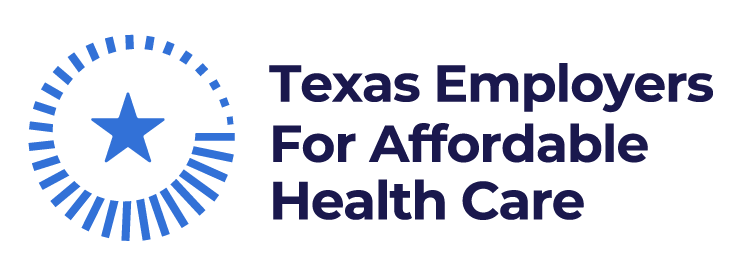 The relentless and unsustainable rise in the price of health care is straining employers nationwide. And while we at Texas Employers for Affordable Health Care are focused on state-level solutions, I was thrilled to be invited to join similar organizations from other states in an effort by the National Alliance of Health Purchaser Coalitions to inform lawmakers in Washington about the struggles employers face with issues related to transparency, fiduciary responsibility, and access to data files.
The relentless and unsustainable rise in the price of health care is straining employers nationwide. And while we at Texas Employers for Affordable Health Care are focused on state-level solutions, I was thrilled to be invited to join similar organizations from other states in an effort by the National Alliance of Health Purchaser Coalitions to inform lawmakers in Washington about the struggles employers face with issues related to transparency, fiduciary responsibility, and access to data files.
Employers provide health coverage to more than 160 million Americans, and self-funded employers are directly responsible for managing every health care dollar spent. More than 14 million Texans are covered by employer-sponsored health insurance. This puts employers in a prime position to help improve the value of health care.
However, doing so requires a health care market with transparent pricing. Transparent pricing empowers employers to design better benefits, guide employees to high-value care, and negotiate with providers. Thankfully, Texas employers are getting more information about health care prices thanks to efforts like Senate Bill 1137 and House Bill 2090, passed by the Texas Legislature in 2021.
But while price transparency was a critical step toward improving health care markets, anticompetitive, outdated laws and regulations were still preventing health plans from providing customers with information about quality, making it often nearly impossible for people to shop for lower cost, higher quality health care services and providers.
That’s why we advocated for and applauded this year’s Texas Legislature’s passage of Senate Bill 926, introduced by Senator Kelly Hancock. This important legislation removes barriers to information about health care quality and allows insurers and health plans to reward smart shoppers through modified deductibles, copayments, coinsurance, or other cost-sharing provisions. Similarly, we were supportive of the passage of Senate Bill 493, sponsored by Senator Lois Kolkhorst, which allows pharmacists to inform patients about opportunities to save money on prescription drugs.
This legislation is part of the Legislature’s continued efforts to help employers and working families rein in out-of-control health care prices. But there’s still more to be done.
Too many employers continue to be denied access to the very data they need to manage costs, measure performance, and ensure value. Self-funded employers especially must know the true price of care to fulfill their fiduciary responsibility and protect plan assets.
That’s why we developed the Employer Health Care Data Field Guide, a critical resource for employers seeking to access their health care data and put it to use to maximize the value of their health plans.
I was excited to see how receptive everyone we met with was as we sat down and shared our experiences and explained the importance of tackling these issues. And I was proud to be able to highlight the advances spearheaded by the Texas Legislature as examples of how these issues can be addressed by restoring competition to health care markets and empowering employers and their employees to find the best value for their health care dollars.
As much as I enjoyed sharing our experiences in Washington, I am most glad to be back home and to continue working with our members and our dedicated public servants at the state Capitol to lower the price and increase the value of employer-sponsored health care in Texas.
